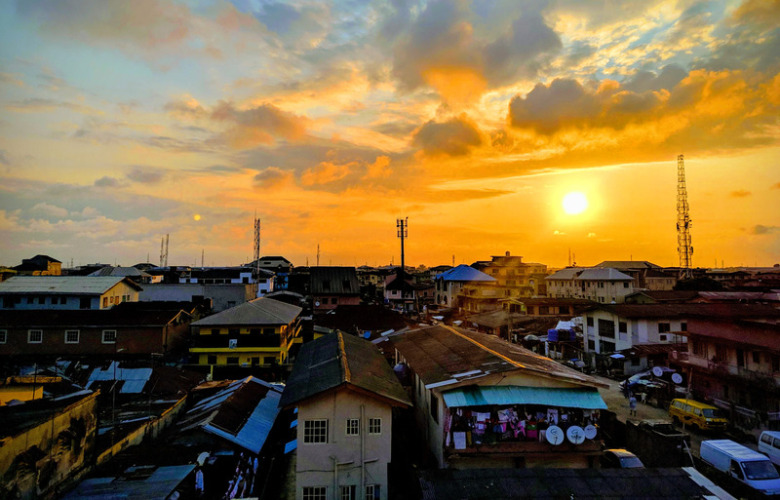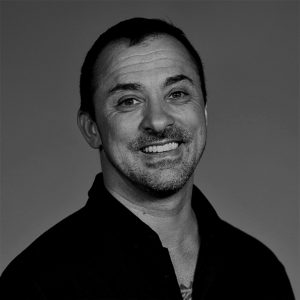
Wunika Mukan is a Nigeria-based curator who works passionately with interdisciplinary artists, creatives, and organizations to create meaningful productions and sustainable initiatives that build strong communities. In our interview she explains her own journey into the arts and shares her vision and dreams for the future.
To give a quick background:
Wunika Mukan just opened her own art gallery, Pacers Gallery, in Lagos, Nigeria.
She is the founder and director of the Women’s Film Club. She also served as Brand Director at the African Artists’ Foundation, a non-profit organization dedicated to promoting contemporary African art.
She graduated from Howard University.
Wunika Mukan has a strong passion for the arts as well as for supporting artists in finding their voice within the national as well as international art market.
What drives me is always to keep making noise about the creativity in Africa. Whether it is through film, art, or music.
In 2020, I opened my own gallery, Pacers Gallery. It is a gallery which will set its focus onto amplifying the new voices of amazing young creatives who I feel are important to be heard.
I want to be that strong, supporting voice which discovers talent and creativity.
And, last year with its pandemic-induced time for reflection has really allowed me to own that, to own and further develop my unique voice as well.
Originally, I started off wanting to be a film maker. As in many countries at that time, venturing into the arts was not seen as a safe and proper career path. My father wasn’t happy. So I did not major in film.
I had always been interested in media communications. Not being able to study in this field, I did realize however that I had a good eye for film, a good ear for music. I did in general have an eye for good art.
So, I thought, if I am not able to create art myself, then the least I can do is to identify and promote the arts.
Working with the African Artists’ Foundation was my entry. I learned so much there.
Through this organization, we created a space in Lagos, Nigeria, called the Lagos Photo Festival. This was over ten years ago.
There were always exhibitions and cultural events in Lagos. But the Lagos Photo Festival was able to bring this community closer together. Our event always took place in October, and through the event, October began to be the season for the arts.
Now, October and November is a solid time in Nigeria for arts festivals. And, a lot of this did start with the Lagos Photo Festival.
I could see what we were creating, could see the scene changing. Some artists’ careers took off just because they were a part of the Lagos Photo Festival.
Then, the internet took off, and social media. Which gave us a platform to reach out internationally on a much larger scale.
A lot of people from outside the country began coming into Nigeria for arts projects.
When I left the African Artists’ Foundation, I realized I wanted to work as a Cultural Producer.
I never saw that title anywhere. I didn’t hear it expressed as such. But I knew what I was doing was essentially to create a platform which offered a space for artists to shine.
I began working with different festivals.
At one point, I was the project manager for the Nigeria Pavilion at the 57th Venice Biennale. This was Nigeria’s first time at the Biennale. We had to raise an obscene amount of money.
We also had to try and get people to understand how important it was for our voice to be represented there. It was a really tough job.
But I kept being sure of my role behind the scenes. From where I wanted to do my best to amplify the voices of our artists.
Nollywood has a huge presence in Nigeria. A majority of films are slapstick, comedy, or about voodoo, etc.
I found there isn’t enough space for independent films. Even if we do have film makers that are telling other stories as well, stories that are not so funny, but rather deep. Stories that speak to us.
Unfortunately, sometimes these unusual voices are not appreciated within the country.
There is a certain style Nigerians like. And if you don’t have that style, even if you are very talented, you are simply not visible.
However, I have found that there is an audience for the non-mainstream films. There are people who want to see thoughtful, alternative cinematography.
In the Women’s Film Club we promoted these independent films. Films that were smart, relatable, and honest. Local voices. African voices.
For example Kasala!, Rafiki (a Kenyan LGBT film), etc.
Because of all the prejudices in the country, I was a bit nervous about screening Rafiki. I didn’t want unnecessary attention. But the reactions were the exact opposite from what I had expected. They were very positive.
I realized, there is an audience for more. We want to see more. We want to see our lives reflected in the films.
Félicité was another one of these kind of films which are rooted in our reality. It is an African film about a mother in Kinshasa and her struggles to help her son who had a car accident and needs surgery.
The Women’s Film Club was great. It built a strong sense of community.
Another big event I worked for was the Art Summit Nigeria. It consisted of huge exhibitions as well as talks. And it featured a lot of digital work by African artists.
Most of the time, people exhibit only what sells well. But there are different types of artists. And sometimes, their voices can be drowned out.
Especially in this new age, a lot of artists work digitally. We wanted to recognize the digital aspect of the arts. We did that for a few years and it was very beneficial.
I got tired of feeling down. Felt fatigue when discussing with sponsors. And felt disheartened when we weren’t able to realize what we really wanted. People would congratulate us and say, “Oh, this is wonderful.” But deep inside, I left each project feeling a little sad.
This is why at the beginning of 2020 I thought, what else can I do. How can I still support the arts and the artists yet avoid being involved in these large-scale projects?
Often, young artists come to me for help. I thought about that and realized, why don’t I just start my own gallery?
There was one artist I had sort of been managing. I organized a small exhibition for him in Lagos.
It felt good to work on a more personal level with someone. And people around me said, “Just go for it and work more closely with artists, one-on-one.”
That’s where I am right now. In 2020, I took the plunge. I opened my own art gallery, Pacers Gallery in Lagos. Just now, at the end of 2020, I had my second exhibition which sold out.
I kind of stumbled into this.
All of a sudden there is this great demand for African voices. Everyone is looking towards Africa. Everyone is trying to buy contemporary African art.
What we often don’t realize is that the African influence was there all along. Our presence was just more hidden. Picasso, for example, was greatly influenced by African art.
A lot of African art from over the centuries is in museums all over the world.
I guess people just were not sensitized to and aware of this fact. And of the importance of African voices. Nowadays, with social media the world is opening up a lot more. Everything is more immediate. And people notice the different kinds of art work coming out of Africa.
African artists are also excited for their work to be seen outside of Africa.
In this new art world which develops so quickly, I want to be someone who can help and guide. Because the art world is cut throat. It is easy for an artist to get lost in it.
A lot of artists here don’t have the same exposure and tools that artists in the rest of the world have. I am trying to get them to travel, share their experiences, and work with the world.
My years of experience working for the arts, whether it has been profit or non-profit, have built and shaped me for this role.
It is really beneficial for me to have worked behind the scenes… and now to be able to give advice, open galleries, and exhibit work.
In the end, everything in the art world really revolves around people and connections.

Meet Nigerian Film Maker Ema Edosio Deelen
The Beauty Of The Creative Process


Liam Klenk was born in Central Europe and has since lived on four continents. Liam has always been engaged in creative pursuits, ranging from photography and graphic design, to writing short stories and poetry, to working in theatre and shows. In 2016, Liam published his first book and memoir, 'Paralian'.
Read Full Profile© 2021 TheatreArtLife. All rights reserved.

Thank you so much for reading, but you have now reached your free article limit for this month.
Our contributors are currently writing more articles for you to enjoy.
To keep reading, all you have to do is become a subscriber and then you can read unlimited articles anytime.
Your investment will help us continue to ignite connections across the globe in live entertainment and build this community for industry professionals.